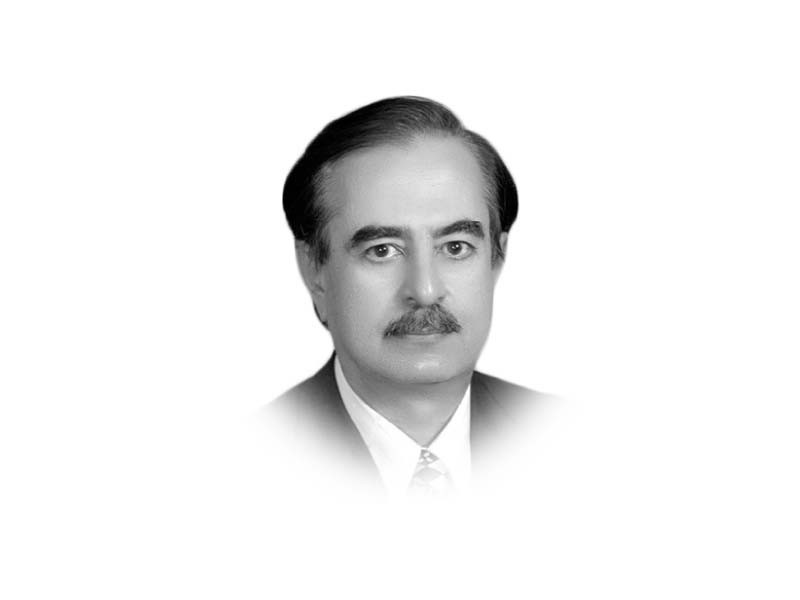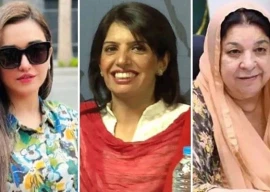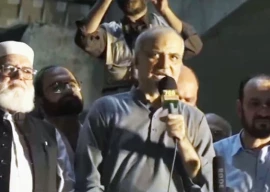
Salaar is packing his household bric a bac for a parlous journey across Spin Boldak into an Afghanistan from which he hails but which he has never seen.
The Afghan taxi driver, Sohrab Goth-born, having spent 43 years in Pakistan, prepares his menage of six, having cheaply disposed of durables, to make his way back, with a Pakistani wife, to his ancestral country which his father left not out of choice but for the safety of his brood. His children were born, grew up, got educated, married and had grandchildren in Goth.
He recalled his banter with a Bihari friend, Laeeq, and an old chum, Abdul, an East Punjab emigree, pulling his leg for being a second class sapien, wondering why Salaar was not a Pakistani citizen like them since all three were born in Goth. A friendly lawyer, whom he taxied daily to the courts, had explained in incomprehensible legalese: “Because Pakistani law, while it extends the right of jus soli, it expressly excludes refugees.”
The ruddy faced lawyer expounded, “Countries like USA and Canada concede this right; even India, if one or both the parents are locally born.” Sipping his qahwa he lightly chuckled: “Bhayi Jan!…no wonder rich couples get their offspring delivered in UK or US.” Continuing jestingly, “Salaar Khanbhai...your father, God bless him, chose the wrong country to bring you into the world…hahaha!”
The keen, aspiring lawyer, Ehsas Ehsan, then enlarged upon a long lecture incomprehensible to all of them: “Refugees,” he explained, “flee their country from serious risk to life. The dangers to their safety and life leave no choice but to seek safety outside their country. Refugees have a right to international protection.”
“An asylum seeker,” the upcoming lawyer of humanist bent, dilated, “is a person who leaves his country and seeks protection from persecution in another country, but who hasn’t yet been legally recognised as a refugee and awaits a decision on his asylum claim. Seeking asylum is a fundamental human right,” he rested his case before a seemingly uninterested jury.
The three friends puzzlingly scratched their heads in partial awe, more bewilderment, while Salaar worried about the next installment for his taxi disposed of for a pittance.
On another occasion Salaar recounted his father remembering how during the 1970s they were received with open arms with references to Muhajireen-e-Makkah and the Ansar-e-Madina quoted by everyone, high and low.
While tying up old beddings, he ruminated how before the 1970s Afghan Jihad, which later morphed into Talibanisation, there were very few Afghans who left their country to seek refuge in Pakistan for their safety.
Salaar remembered his father’s words: “We are proud of our lands; never in history have we been forced out of our hearths and homes to seek refuge? A Pashto proverb goes around: “Har cha ta khpala khawra Kabul khkaree.” This means “To everyone his own soil is Kabul.”
On another occasion the taxi driver remembered a heated discussion between some lawyers he was carrying to the Sindh High Court premises. A white haired advocate was passionately expounding, “Pakistan is not signatory to UN conventions on refugees, yet, under the UN Universal Declaration of Human Rights, to which Pakistan is a signatory, human beings, whose lives are in imminent danger, possess the right to protection and asylum in a neighbouring country.”
Another charged lawyer interjected, “These Afghans left their country to take refuge in Pakistan, mainly KP and Balochistan, because of circumstances in Afghanistan that were in large part the creation of our dubious India-centric geostrategic policies which brought havoc to both Afghanistan and Pakistan.” In a high pitched voice he exclaimed, “This uncalled for intervention, which proved so costly, was started during Sardar Daud’s time, followed by our participation in the anti-Soviet jihad and later our duplicitous Taliban policies with its devastating blowback, resulting in 80,000 deaths and billions in economic loss.”
In nebulous memory Salaar remembered how a sharp witted lawyer had mentioned things that flew above the cuckoo’s nest.
“We are not signatories to it, but indirectly, by being signatories of UN Charter we are bound by Art 33 of UN 1951 Refugees Convention which prohibits ‘expulsion’ (refouler) or return to frontiers of territories where life or freedom of refugees is threatened.”
He further asserted: “Art 34 of UN 1951 Refugee Convention states that states shall facilitate the assimilation and naturalisation of refugees.”
A barrister vehemently interjected, “We fail to ask who, with CIA backing, played a major role in the creation of mujahideen who later converted into Taliban?”
The passionate lawyer exclaimed: “The US wanted to avenge Vietnam and dismantle USSR whereas our interests lay first in countering a pincer from east and west and more immediately to seek international legitimacy for military regimes.”
Another participant advocated, “A more orderly return was certainly possible. The biggest Azakhel refugee camp was evacuated under a planned repatriation programme in cooperation with UNHCR and other UN agencies/donors.”
“The instant issue deals with only 1.7 million Afghans who left when the Taliban took over Kabul in August 2021,” chipped in another companion.
“Nearly 3 million more refugees who came after 1979 Soviet invasion and post 2002, remain. While the 1.7 million are suspected of harbouring terrorists, are the remaining 3 million, by implication, angels?!” quarried one with a twinkling eye.
The doyen of the confabulations quipped: “On legal, humanitarian and grounds of self-interest, the present policy has nothing to recommend. It will further estrange Afghan people and government whose goodwill is diplomatically valuable to retain under all circumstances.”
Another said: “What about the logistical difficulties involved in evicting 1.7 million? Is it just a show of pretense? Are holding camps a viable option, fraught with serious blowback in case of human disasters? Will even remote equations with the US 1882 Chinese and the 1924 Japanese Exclusion Acts help our image? If pressure is intended on Kabul to reign in militant attacks on Pakistan territory, will this retaliatory policy create goodwill among the Afghans?
If the goal is local-led democracy and normalisation in Afghanistan, will this policy help? Was it not better if a government with full-time elected mandate of 250 million rather than a temporary outfit had dealt with a subject of fundamental importance with possible long-term consequences?
Published in The Express Tribune, November 6th, 2023.
Like Opinion & Editorial on Facebook, follow @ETOpEd on Twitter to receive all updates on all our daily pieces.















COMMENTS
Comments are moderated and generally will be posted if they are on-topic and not abusive.
For more information, please see our Comments FAQ